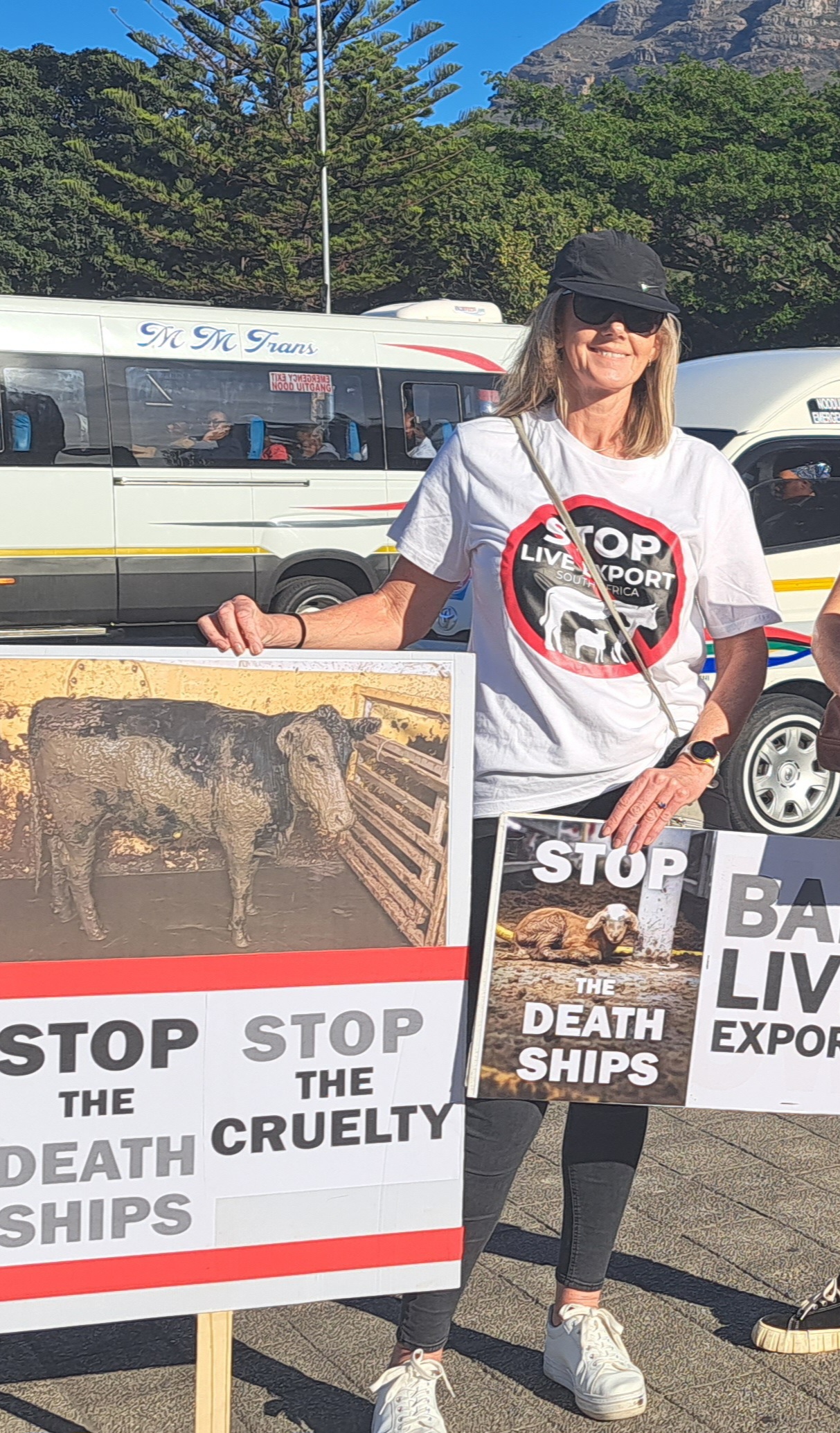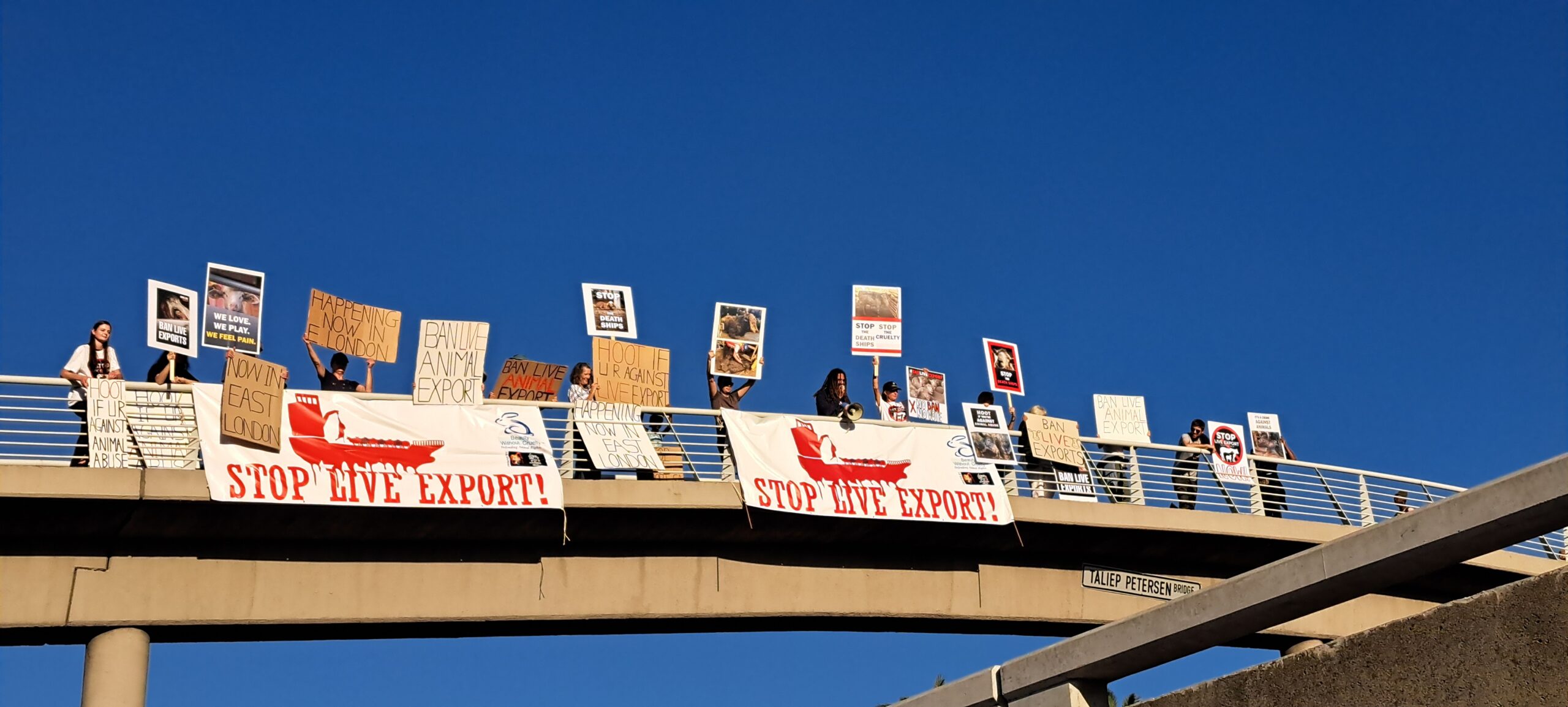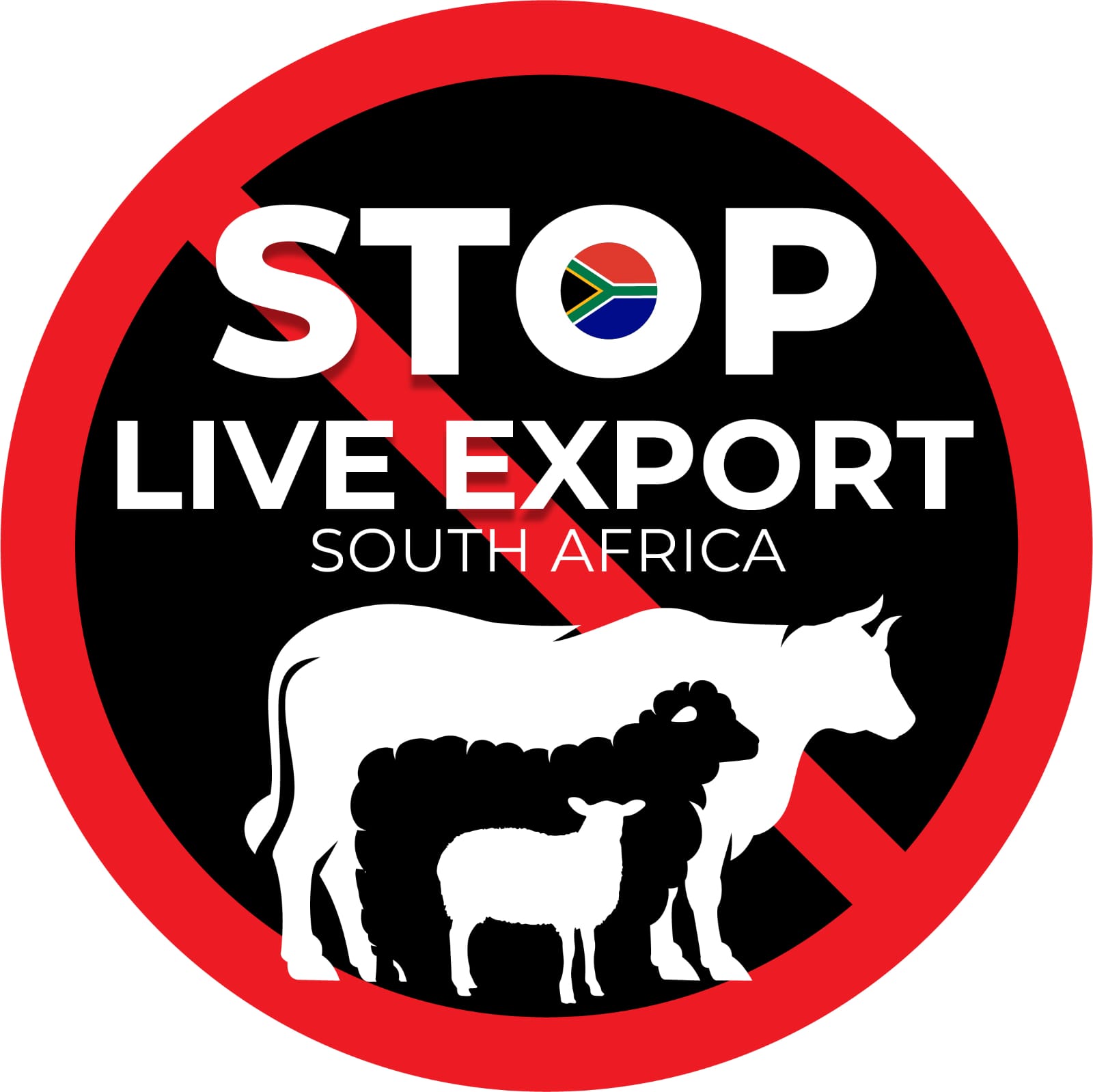Michelle Taberer | Co-founder of Stop Live Export South Africa



Using her voice for the voiceless
The organisation Stop Live Export South Africa may be advocating for the end of animal cruelty over 10,000 kms away from Fremantle-based Stop Live Export, but the two organisations have much in common.
“Live export is an old, outdated practice which is totally unnecessary and unacceptable in this day and age; it subjects millions of animals globally to suffering on long, arduous sea journeys,” says Michelle Taberer, Co-founder of Stop Live Export South Africa.
“We have laws in place to govern animal welfare, but once these export vessels leave our waters, there are no laws to safeguard the animals on ships, and no way to monitor or protect them.”
South Africa exports live sheep by sea to the Middle East from March to May, whilst cattle exports to Mauritius occur throughout the year, with ships leaving fortnightly.
“The reality is that these animals often face dehydration, hunger, exhaustion, motion sickness, injury, heat stress, and mental and physical anguish from being confined in cramped conditions over the long transport period,” says Michelle.
“And at their destination, they are often handled in a manner that would constitute an offence under South African law.
“The bottom line is we can’t be sure that the animal welfare standards of destination countries are sufficiently rigorous and enforced, especially because these countries often implement cruel slaughter methods.”
A self-confessed animal lover, Michelle explains she was compelled to form Stop Live Export South Africa when, in February 2024, the Al Kuwait livestock vessel made an emergency docking at Cape Town harbour, en-route from Brazil to Iraq, carrying 19,000 cattle. The vessel had been at sea for almost three weeks and Capetonians became aware of the ship due to the extreme stench emanating from the vessel, which stretched for over 10 kilometres.
After it docked, the South African NSPCA went on board to conduct an inspection, which revealed appalling conditions – several cows were already dead and many more had to be euthanised, while others were found covered in faeces.
“This was the first time that South Africans had been given a real insight into the conditions on board these vessels and they were horrified,” recalls Michelle.
“South Africans do not want animals to be subjected to cruelty and suffering. Our people embrace the spirit of ‘Ubuntu’, which recognises the interconnectedness of all beings, and that humans are part of a larger and more significant relational, communal, societal, environmental and spiritual world.
“I too see all animals as the same as us – sentient beings. They feel joy and pain. They can form bonds. They love and care for their young. All they want to do is live their lives free from suffering. When I look into their eyes, I don’t just see an animal, I see a soul. There is a being inside that body and, to it, its life is important. Human beings have a duty to care for and protect all living things on this planet, and that includes animals.”
Following the insight into the horrors of live export because of the shocking Al Kuwait incident, Michelle – who works full time managing a legal practice – went on to establish an active and robust social movement, dedicated to raising public awareness about the injustice and cruelty inherent in live animal export. From there, Stop Live Export South Africa was born.
The volunteer-based organisation is focused on creating public awareness of the injustice and cruelty inherent in the trade, whilst rallying the population to support the call for a ban.
“Based on the feedback we’ve received at protests and on our social media posts, the vast majority of South Africans are strongly opposed to live animal exports,” explains Michelle, who closely follows the work of Stop Live Export in Australia and Compassion in World Farming to keep updated with what is happening in other countries in relation to the trade. “The only people who want it to continue are a small handful of farmers who are benefitting from it.
“While it may be financially profitable, although unproven, economic benefits cannot be justified at the expense of the law and animal welfare,” she says. “South Africa needs to be seen as an ethical trading partner, and it is essential to prioritise justice, integrity, and ethical considerations above economic gains.”
Today Stop Live Export South Africa has an active Facebook and Instagram page, in addition to a website with information about how people can get involved.
“Ultimately, we want live animal exports from South Africa to be completely prohibited,” says Michelle.
“The way we plan to achieve this is by making as many South Africans as possible aware of the atrocities of this trade, to sign our petition, to write letters and attend our protests so that we can place pressure on our government to outlaw it.
“Live export is heart-breaking; I find it so distressing to look at the images and footage taken on board livestock ships, to see those poor animals suffering so badly. It really does affect me, but I just can’t turn a blind eye.
“Because if everyone did that, live export would just continue. At some point one has to be brave enough to tackle this head on, even though it hurts.
“I always tell myself that, as distressing as it is for me to bear witness, those animals are suffering a lot more. And I have to try and help them in any way that I can.
“To do nothing is not an option.”
Stop Live Exports South Africa welcomes global supporters, and urges readers of this article to sign its petition – https://stopliveexport.co.za/petition/
